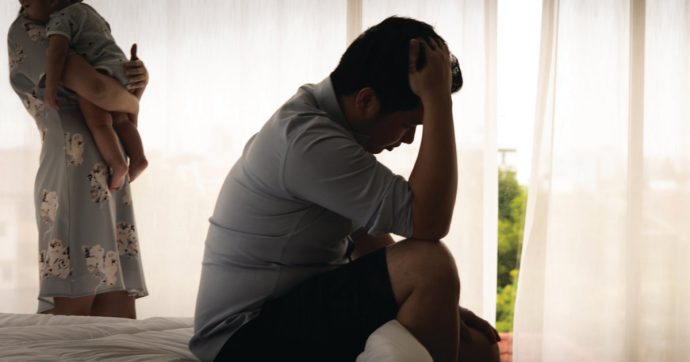The ongoing COVID-19 pandemic has been the source of much worry and anxiety among Malaysian parents and by extension, our children as well.
As part of ongoing efforts to combat the pandemic, the government has enforced stringent measures such as nationwide movement control orders (MCO). However, being forced to live under the various phases of the MCO has led to various negative effects on our mental health.
The World Health Organization (WHO) has acknowledged that the pandemic will have a long term and significant impact on mental health, and action should be taken to address anxiety and stress. This means that both adults and children will be affected and many will face difficulties coping, leading to a higher risk of developing mental health issues such as depression or anxiety.
Even before the pandemic, the 2019 National Health and Morbidity Survey (NHMS) had indicated that Malaysians (including children) faced a potential “mental health epidemic”. During the early stages of the pandemic, another survey in 2020 found that university students experienced high levels of anxiety.
As has been recently reported in the news, suicide rates have also increased substantially. Police records for the first five months of 2021 showed 468 suicides, as opposed to 631 and 609 for the whole year of 2020 and 2019 respectively.
Importance of mental health
Living in close proximity with each other for long periods of time, without being able to step outside of one’s home, is not an ideal living situation for families. In order to achieve stability and harmony in the household, family members need to make a conscious effort and work together.
This can be challenging, especially in light of potentially new stressors that MCO has introduced into our lives, e.g. enforced social isolation, cramped living conditions, lack of privacy, and even dealing with the loss of loved ones.
For children, these are new stressors on top of the usual academic pressures which can lead to an increased risk of mental health problems. Therefore, it is important that children are actively involved in how the family can learn to cope with these drastic changes in lifestyle.
Stress management can be handled by using reactive approaches such as having some “me-time”. You would need to actively organise and adapt your daily routine in collaboration with other family members to make time for this. Find something that works; it could be listening to music, gardening, exercising, spiritual practice, or a combination of these activities.
Take care of yourself first
According to Prof Dr Alvin Ng, “It’s helpful for parents to manage their mental health first. It’s just like when you’re in an airplane and you have to wear your own oxygen mask before you put one on your child. It is easier to deal with your children’s issues more effectively when you are in a rational and calm mood.”
Parents may do a simple self-assessment on symptoms of anxiety and depression by answering this online assessment. Note: The online assessment is from the UK and the contact number on it is not applicable to Malaysia.
This online tool is meant for self-assessment and should not replace professional help or advice. If your score indicates potential problems, e.g., moderate to severe scores, please seek professional advice. You can visit your doctor or any nearby Klinik Kesihatan for a referral letter to a government hospital if you need to see a specialist. For more immediate help, please call Talian Kasih 15999.
The difference between mental health vs mental illness

Mental health refers to our emotional, psychological and social well-being and it influences how we think, feel and behave. Mental health is about being functional, adaptable and generally well, with the ability to thrive.
Mental illness is the opposite, and comprises conditions which negatively affect our mental health to the point that we are dysfunctional, maladaptive and frequently in distress.
Prof Alvin warns, “Do not ignore signs of distress, poor functioning, lack of pleasure or extreme anxiety, especially if they last for weeks as this usually indicates a problem. Left alone, things may worsen and lead to clinical depression or anxiety. There’s no health without mental health. Get that into your vocabulary and let’s break the stigma surrounding it. Consult a professional and find out how to get better.”

The next step
After ensuring that your own mental health is good, it’s time to look into your child’s mental health. Compared to adults, children are more vulnerable to fear and worry. The danger lies in the fact that most of the signs and symptoms are subtle.
Dr Rajini Sarvananthan reminds us, “Some aspects of parenting are important, and they include having a positive parent-child relationship, accepting your child for who he is, being involved in his life, encouraging positive social development among peers and other age groups, and also taking care of his physical health. While important, these are just the basics, so you have to do more.”
Explore emotions by talking about them, especially fears and worries. One way to help your child better cope with stressors is by addressing any fears they may have. Talk with him about the latest news, listen to what he says and acknowledge his feelings/fears. Just like adults, children (especially adolescents) may need some “me-time” to help them manage stress, so do factor in some time for this in your children’s schedule. Keep an eye on their activities without excessive monitoring.
Social and emotional skills are important, so teach them and lead by example. Don’t avoid sensitive topics but speak about them as openly and honestly as you can. This will provide your child with a better environment to enhance his resilience, and is helpful in preventing mental health problems. Additionally, encourage family activities that can be done daily (e.g. having meals together) or weekly (e.g. going for a walk or exercising together). The idea is to spend quality time together, so keep digital gadgets away!

Watch for warning signs
Dr Rajini also points out that mental health problems in children can go unrecognised, especially in the case of young children under 6 years of age. As parents, you can start identifying warning signs by paying close attention to your child. You may use this self-assessment tool to check for observable signs of depression and anxiety in your child. This self-assessment tool serves as a guide and should not replace a proper diagnosis. If you have any worries about your child’s mental health, seek advice from his doctor.
Research has shown that intervention and prevention efforts are needed and can be effective in reducing problems caused by internalising symptoms in children. Internalising symptoms are essentially emotions turned ‘inward’ or toward one’s self, e.g. feelings of sadness, low self-esteem, behavioural inhibition, and fears. A sign to watch out for among children is regressive behaviour, which is a common response to stress, frustration, or traumatic events. This is how young children exhibit distress.

The consultant developmental paediatrician remarks, “Another way to describe regressive behaviour is ‘not acting their age’, so your child may throw a tantrum or ‘forget’ some of the skills that he has already learnt, such as getting dressed by himself. Although regressive behaviour is more common among toddlers and pre-schoolers, it can still happen with older children and yes, even adults!”
In addition to this, parents will also need to take other factors of social development (and relationships) into account. That means balancing physical health with the need to stay safe against the pandemic (via lockdown or social distancing). Since children won’t be able to socialise as they did previously, find ways for them to maintain their closeness with their friends and family, especially grandparents. You can arrange for weekly video calls for a virtual family gathering so you can catch up with each other.
School-going children have also been forced to attend virtual classes, so once schools reopen (and this includes nursery schools and preschools), your child may need some time to re-adjust before going back to school; and you should consider putting aside some time to help them get in tune with this.

Don’t neglect mental health
The Chairman of the Positive Parenting Programme, Datuk Dr Zulkifli Ismail highlights the importance for parents to be more involved with their child, saying “Without a doubt, early recognition of potential problems is important to take effective preventive actions. In order to do this, it’s important for parents to take mental health seriously.”
You should recognise the importance of mental health, both for you and for your child. It is unfortunate that when it comes to mental health and mental illness, some stigma still exists. Don’t shy away from reaching out for help. The Malaysian Mental Health Association (MMHA) offers counselling services; alternatively, there are hotlines that provide safe spaces for people who need someone to talk to. Befrienders KL operates a 24-hour hotline (03-7627 2929) and the BuddyBear Hotline meant for children/adolescents operates from 12pm-12am (1800 18 2327).
- MMHA Psychological Support Services: https://mmha.org.my/find-help
- More info on BuddyBear: https://www.humankind.my/childrencounseling
Datuk Dr Zulkifli says, “I hope that parents will keep a more open mind about mental health and mental illness. Remember that mental health problems can occur at any age, and children are not ‘immune’ to it. Please seek professional help if necessary, whether it is for diagnosis, treatment or to manage the condition. It’s important that we learn how to reach out for help if we need it. As parents, don’t be afraid or shy away from asking for help if you truly need it as doing so can help alleviate some of the stress or pressure that you face.”
By
Prof Dr Alvin Ng, Clinical Psychologist and Founding President of the Malaysian Society of Clinical Psychology (MSCP)
Dr Rajini Sarvananthan, Consultant Developmental Paediatrician
Datuk Dr Zulkifli Ismail, Chairman, Positive Parenting Programme






Comments